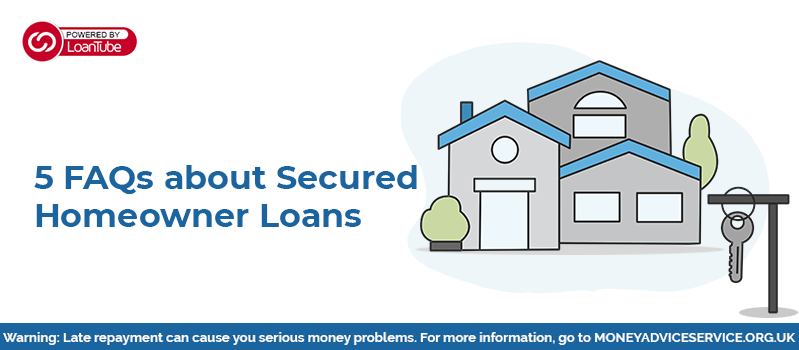Sometimes, a typical loan cannot fulfill your cash requirement, especially if you’re borrowing a large amount of money. In such cases, having a property can help you leverage the situation. Homeowner loans can help you get financial aid against your property.
In this article, we’ll learn about homeowner loans and how you can capitalize on your share in your property.
What are secured homeowner loans?
Secured homeowner loans are a form of secured credit, borrowed against the value of your property. Rather than securing an asset, such as a car, you use your share in the property as collateral in a homeowner loan. You can borrow a significantly larger amount of money at a lower rate of interest with a homeowner loan. However, there are a set of risks associated with this type of credit. When you declare your house as a collateral, you are risking the possession of your property. Thus, the lender can repossess your home in case of a default.
To be eligible for a secured homeowner loan, you must be a homeowner or hold equity in your property. Home equity refers to the value of your share in a property for which you have mortgage. Simply put, home equity is the difference between the market value of your property and the amount you owe in mortgage. Take a look at the example below:
Let’s say you’ve recently invested in a property worth £200,000, wherein you’ve paid 30% (£60000) as down payment. Now, you take out a loan to pay the remaining £140,000. Hence, your equity in the property is £60,000.
What can I use a homeowner loan for?
People need money for a plethora of reasons. You could be planning a refurbishment or investing in a new property, the list goes on. Most people borrow such a large amount of money to support a home improvement project.
If you’ve been piling on multiple debts, and now owe a huge amount of money, a homeowner loan could be useful. People often consolidate their debts to organize their finances and pay lower interest using a homeowner loan. Although, it is important to consider the risk that this loan can put your property in.
How much can I borrow through a homeowner loan?
The amount of money that you can borrow through a homeowner loan is determined by:
- The market value of your home
- Your credit history / creditworthiness
- Your income
- Your loan term
- Your age
Most lenders have a standard criteria with respect to the maximum loan to value. Lenders will decide the amount of money that they want to lend based on the value of your property. Consider the following example:
If you own a property worth £200,000, and want to borrow £90,000, the LTV is 45%.
However, if you have an existing mortgage, you’ll have to subtract the outstanding balance from this mortgage to obtain the LTV.
Continuing with the previous example, your property is worth £200,000 and your mortgage balance is £30,000. This will leave you with £170,000. Now, if you wish to borrow £90,000, your LTV will roughly be 53%.
What will a homeowner loan cost me?
To calculate the holistic cost of a homeowner loan, you will need to take the interest rate and any additional fee into consideration.
Interest: You pay an interest rate for the entire term of your loan. This implies that you’ll end up paying a greater overall interest if the loan’s tenure is too long. A cheap loan will have a relatively lower interest rate. There are two types of interest rates that lenders charge:
- Variable: Variable interest rates can change over the course of your loan. Although, they are, initially, a cheaper than fixed rates.
- Fixed: Fixed rates stay constant throughout the loan term.
Fee: Most lenders who offer secured credit don’t levy any additional charges. However, it is good practice to check what your lender is charging before signing an agreement. Here are some additional charges that you lender may ask you to pay:
- Brokerage fee
- Legal fee
- Disbursement charges
- Valuation charge
What if I want to move houses during my loan term?
It is possible that you move houses within the term of your loan. In such a case, consider the following options:
- Transferring the loan to a new property: Your lender may let you transfer your homeowner loan to the new property. But this comes at a price as the lender may charge an additional fee to move the loan.
- Using the proceeds from the sale to pay the loan: The funds you receive after selling your old property can be enough to pay off the loan.
- Taking out a new loan to repay the original one: If you’re not left with enough money after selling your old property, you could consider borrowing money to repay the loan. Although, this may impact your mortgage affordability.
Tips to successfully apply for a secured homeowner loan
Here are some tips to help you apply for a secured homeowner loan:
- Work out the amount of money that you need to borrow.
- Calculate your LTV.
- Choose a practical loan term.
- Plan your monthly repayments.
- Check your credit score to rectify any discrepancies.


